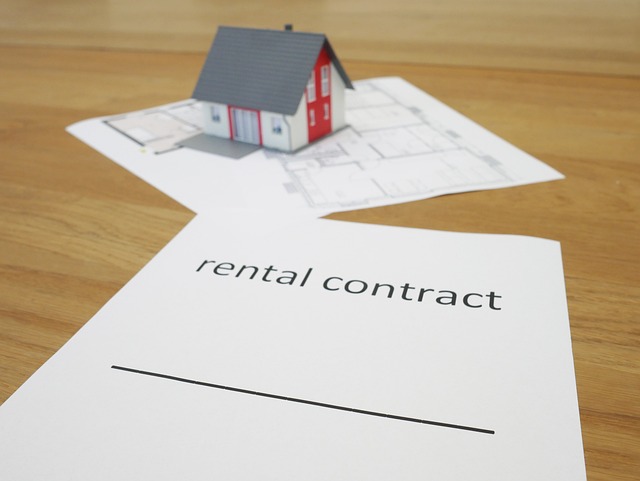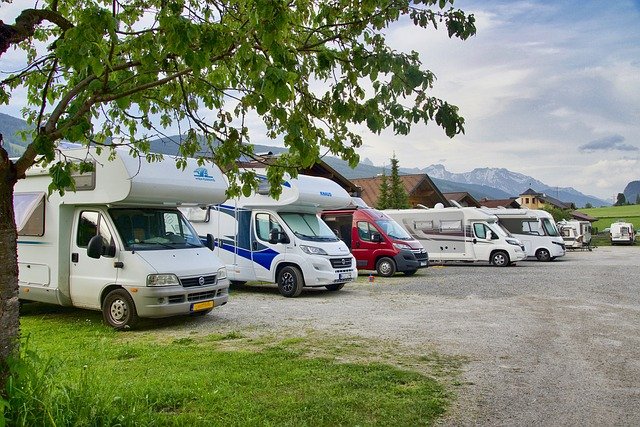Essential Tips for Short-Term Empty Apartment Rentals
Finding the right short-term empty apartment rental requires careful planning and strategic research. Whether you're relocating for work, between permanent housing arrangements, or need temporary accommodation, securing a suitable unfurnished rental involves understanding market dynamics, legal requirements, and practical considerations that differ significantly from traditional long-term leasing arrangements.

Understanding Short-Term Empty Apartments for Rent
Short-term empty apartments typically refer to unfurnished rental units available for periods ranging from one month to one year. These properties differ from traditional furnished short-term rentals because they require tenants to provide their own furniture and household items. Landlords often prefer these arrangements when transitioning between long-term tenants or during property renovations. The rental market for such properties varies significantly by location, with urban areas generally offering more options but at higher price points.
Many property owners choose to offer empty apartments for short-term rental when they cannot immediately secure long-term tenants or when they want flexibility in their rental strategy. This creates opportunities for renters who need temporary housing solutions but prefer the space and privacy of an unfurnished apartment over cramped furnished alternatives.
Short-Term Empty Apartments for Rent Guide Essentials
Successful apartment hunting requires understanding local rental markets and establishing clear criteria before beginning your search. Start by determining your maximum rental budget, including utilities, parking, and any required deposits. Most landlords require first month’s rent, last month’s rent, and a security deposit upfront, which can total three times the monthly rent amount.
Documentation plays a crucial role in securing short-term rentals. Prepare recent pay stubs, bank statements, employment verification letters, and references from previous landlords. Many property owners are hesitant about short-term arrangements, so demonstrating financial stability and reliability becomes even more important. Consider obtaining renters insurance quotes before viewing properties, as many landlords now require coverage before lease signing.
Location research should extend beyond the apartment itself to include proximity to essential services, transportation options, and neighborhood safety ratings. Short-term renters often cannot afford to discover location-related issues after signing a lease, making thorough preliminary research essential.
Short-Term Empty Apartments for Rent Insights
Market timing significantly impacts availability and pricing for short-term empty apartment rentals. Peak moving seasons, typically late spring through early fall, see increased competition and higher prices. Conversely, winter months often provide better negotiating opportunities and more available inventory, particularly in college towns and seasonal markets.
Property management companies and individual landlords approach short-term rentals differently. Large management companies may have standardized policies that are less flexible but more predictable, while individual property owners might offer more personalized arrangements but with greater variability in terms and conditions. Understanding these differences helps target your search more effectively.
Consider the total cost of occupancy beyond monthly rent. Empty apartments require immediate furniture rental or purchase, utility setup fees, and potentially higher insurance costs. Factor these expenses into your budget calculations to avoid financial surprises after moving in.
How to Find Short-Term Empty Apartments for Rent Effectively
Online platforms serve as the primary resource for apartment hunting, but each platform caters to different market segments. Traditional rental websites often filter by lease length, making it easier to identify properties open to shorter-term arrangements. However, direct contact with property management companies can sometimes yield opportunities not advertised publicly.
Networking within your target area can reveal hidden opportunities. Local Facebook groups, community bulletin boards, and word-of-mouth referrals sometimes connect renters with property owners who prefer personal recommendations over public advertising. Real estate agents specializing in rentals may also have access to properties suitable for short-term arrangements.
Consider expanding your search to include corporate housing providers and extended-stay communities that offer unfurnished options. While these may cost more per month than traditional apartments, they often include utilities and require less upfront investment, potentially balancing overall costs.
Pricing Insights for Short-Term Empty Apartment Rentals
Short-term empty apartment rentals typically command premium pricing compared to long-term leases, with increases ranging from 10% to 50% above standard market rates depending on location and demand. Urban markets like New York City, San Francisco, and Washington D.C. show the highest premiums, while smaller metropolitan areas often have more modest increases.
| Location Type | Monthly Premium Over Standard Rent | Typical Lease Length | Average Security Deposit |
|---|---|---|---|
| Major Urban Centers | 25-50% | 3-6 months | 2-3 months rent |
| Suburban Markets | 10-25% | 6-12 months | 1-2 months rent |
| College Towns | 15-30% | 4-9 months | 1-2 months rent |
| Rural Areas | 5-15% | 6-12 months | 1 month rent |
Additional costs for short-term empty apartment rentals include application fees ($50-$200), utility connection fees ($100-$300 per service), and potentially higher utility deposits for new accounts. Some landlords also charge administrative fees for lease preparation or credit checks.
Prices, rates, or cost estimates mentioned in this article are based on the latest available information but may change over time. Independent research is advised before making financial decisions.
Negotiating and Securing Your Rental
Successful negotiation often depends on market conditions and your flexibility as a tenant. Offering to pay multiple months upfront, maintaining the property yourself, or accepting a longer lease term can sometimes offset the premium typically associated with short-term arrangements. Be prepared to demonstrate why you represent a low-risk tenant despite the shorter lease duration.
Review lease agreements carefully, paying particular attention to early termination clauses, renewal options, and maintenance responsibilities. Short-term leases may include different terms than standard rental agreements, and understanding these differences prevents future complications.
Short-term empty apartment rentals provide valuable flexibility for tenants in transition while offering property owners income during periods between long-term tenants. Success in this market requires thorough preparation, realistic budget expectations, and strategic timing. By understanding market dynamics and maintaining flexibility in your search criteria, you can secure suitable temporary housing that meets both your immediate needs and budget constraints.




